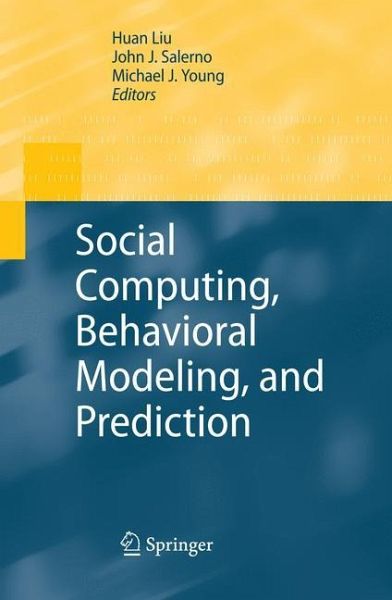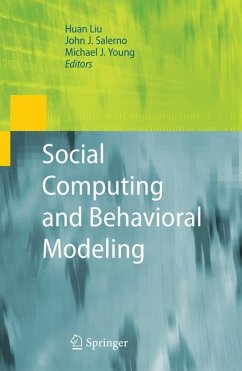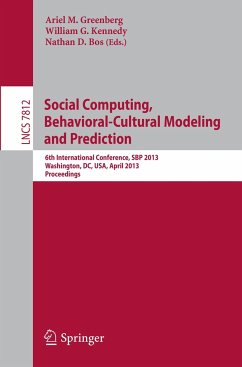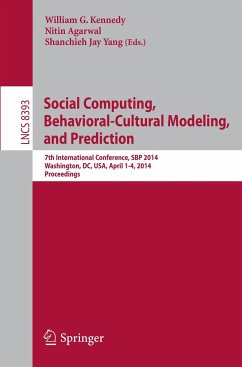
Social Computing, Behavioral Modeling, and Prediction

PAYBACK Punkte
57 °P sammeln!
Social computing concerns the study of social behavior and context based on computational systems. Behavioral modeling reproduces the social behavior, and allows for experimenting with and deep understanding of behavior, patterns, and potential outcomes. The pervasive use of computer and Internet technologies provides an unprecedented environment where people can share opinions and experiences, offer suggestions and advice, debate, and even conduct experiments. Social computing facilitates behavioral modeling in model building, analysis, pattern mining, anticipation, and prediction. The procee...
Social computing concerns the study of social behavior and context based on computational systems. Behavioral modeling reproduces the social behavior, and allows for experimenting with and deep understanding of behavior, patterns, and potential outcomes. The pervasive use of computer and Internet technologies provides an unprecedented environment where people can share opinions and experiences, offer suggestions and advice, debate, and even conduct experiments. Social computing facilitates behavioral modeling in model building, analysis, pattern mining, anticipation, and prediction. The proceedings from this interdisciplinary workshop provide a platform for researchers, practitioners, and graduate students from sociology, behavioral and computer science, psychology, cultural study, information systems, and operations research to share results and develop new concepts and methodologies aimed at advancing and deepening our understanding of social and behavioral computing to aidcritical decision making.














